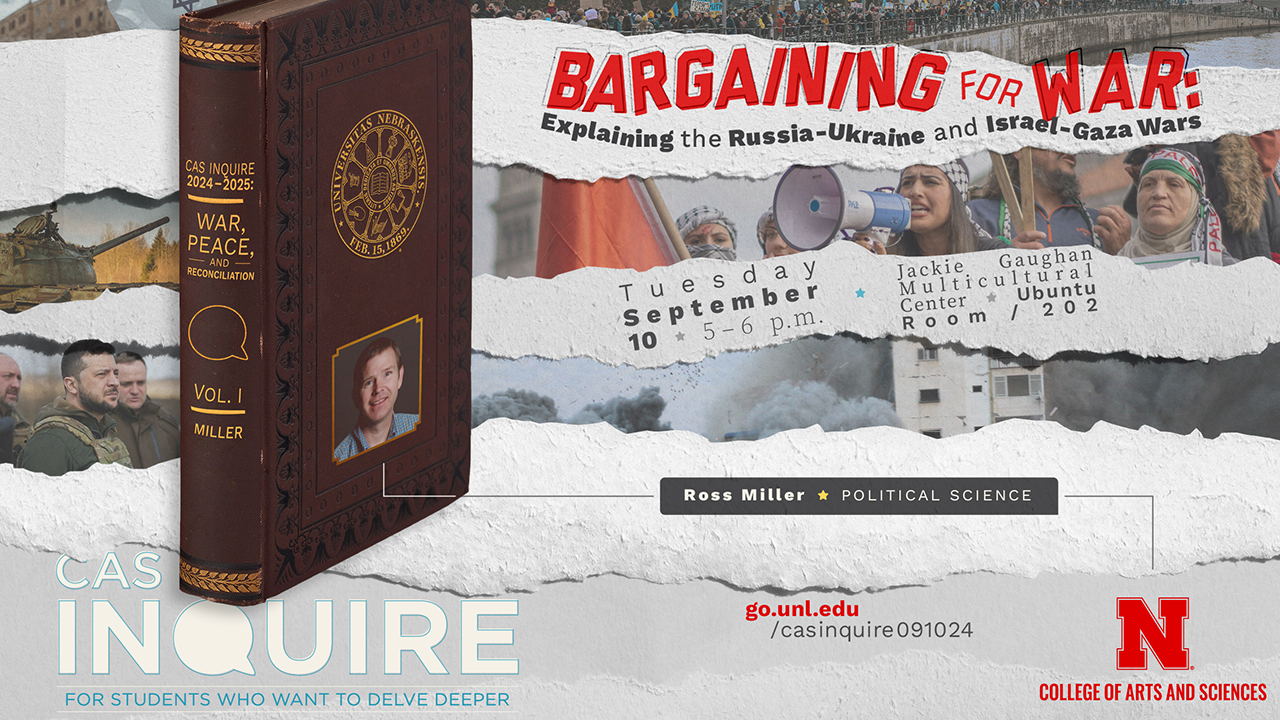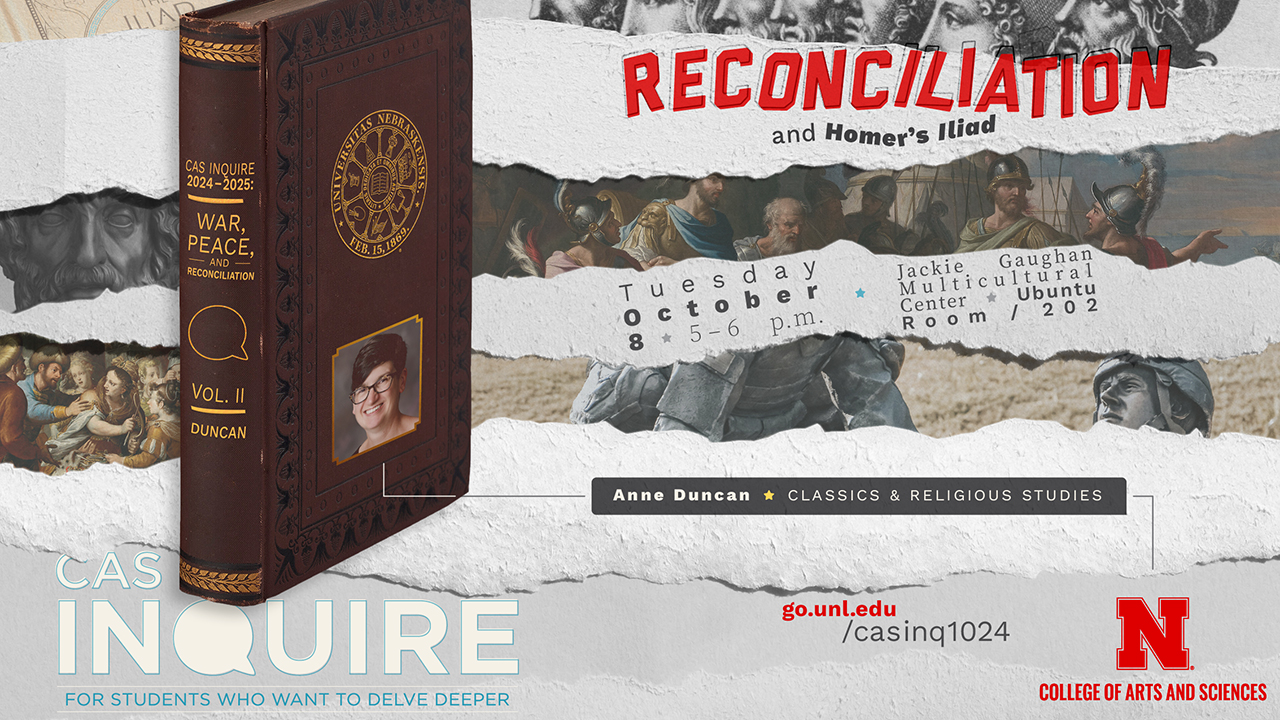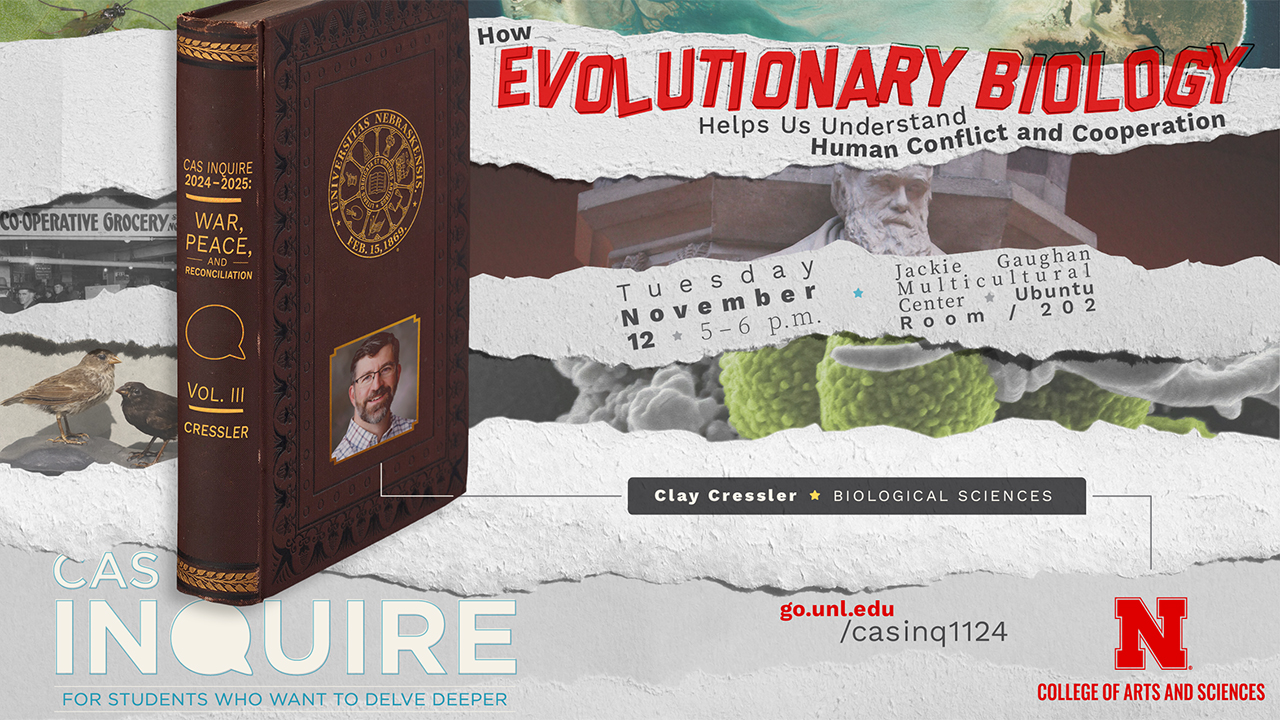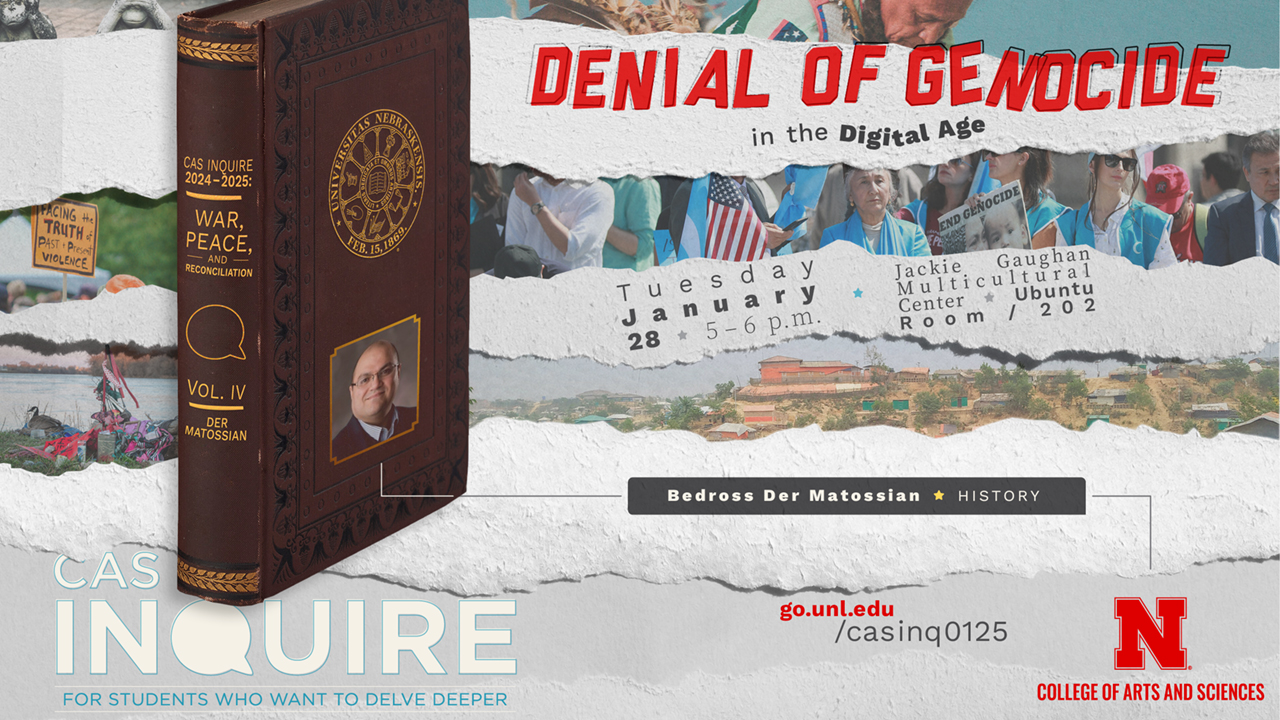Content
All CAS Inquire talks will be in the Jackie Gaughan Multicultural Center, Ubuntu Room/202, 5:00 - 6:00 p.m.
"Bargaining for War: Explaining the Russia-Ukraine and Israel-Gaza Wars"
Why do wars occur? Although there are many explanations available, this talk applies insights from the bargaining model of war to explain the Russia-Ukraine and Israel-Gaza wars. Even though these conflicts involve very different contexts, actors, and issues, they share the common characteristic that both sides chose violence to resolve their differences. What propels actors to use violence instead of negotiation to resolve conflicts?
Even though wars appear frequently in the news, they are rare events in international relations. Most of the time states settle their differences without resorting to war.
Nevertheless, wars occur, and they have devastating consequences. The bargaining model of war helps to explain (1) why war is a rare event, and we can be optimistic that it remains so; (2) why wars still occur even if they should not; and (3) why Russia, Ukraine, Israel, and Gaza chose to use violence rather than to negotiate a settlement and avoid war. At its core, the bargaining model of war finds that in most conflicts there is a range of outcomes that both sides are willing to accept that will avoid war. Even in conflicts where one side is much more powerful, the costs of war and the uncertainty surrounding the war’s outcome mean that even the strongest parties are willing to make concessions.
Why didn’t that happen with Russia-Ukraine and Israel-Gaza? What prevented a negotiated settlement?
The bargaining model of war offers three general explanations why actors are unable to reach settlements: (1) the inability of actors to trust that the other side will abide by agreements; (2) miscalculation about each side’s capabilities and their resolve to fight for their objectives; and (3) factors that prevent states from changing their positions on the issues at stake in order to achieve a negotiated settlement. All three factors operate in the Russia-Ukraine and IsraelGaza wars.
A second insight from the bargaining model of war is that violence is part of the bargaining process, rather than simply a terrible outcome of failed negotiations. Actors use violence not only to force concessions from adversaries, but also to demonstrate resolve: they are willing to fight to achieve their goals. Both of these strategies are present in the Russia-Ukraine and Israel-Gaza wars.

"Reconciliation and Homer’s Iliad"
My lecture focuses on what Homer’s Iliad can teach us about reconciliation during and after a devastating war. In a famous scene at the end of the epic poem, the elderly king of Troy, Priam, appears to the Greek warrior Achilles in his tent to beg Achilles to ransom the corpse of Priam’s dead son Hector. Achilles has spent days mourning his fallen comrade Patroclus, neither sleeping nor eating, and abusing Hector’s corpse. Achilles contemplates killing Priam too, but in a moment of shared humanity, spares his life, agrees to return Hector’s body, and weeps with the old man as they each mourn their losses.
The lecture focuses on several individuals’ interactions with the Iliad. The first individual is the New Yorker film critic David Denby, who describes his experience of going back to college in middle age and re-reading the “great books,” including the Iliad, in his collection of essays called Great Books (1997). He describes his shock and awe at Homer’s combination of violence and tenderness. Denby’s essay makes the case that the Iliad has much to say to modern sensibilities.
The second individual is the psychiatrist and MacArthur “genius grant” winner Dr. Jonathan Shay, who compared the experiences of the Vietnam veterans he counseled in his VA practice with the experiences of Achilles and other warriors in Homer’s Iliad in his acclaimed book Achilles in Vietnam: Combat Trauma and the Undoing of Character (1995). Memorably, he describes Achilles as having PTSD. Shay argues that the way forward out of trauma is to make space for the traumatized to tell their stories and to listen to them with care.
The third individual is the ancient Roman general Scipio Africanus, who conquered Rome’s great enemy Carthage in 146 BCE. As the city of Carthage burned, Scipio supposedly turned to his lieutenant and quoted the Iliad with tears in his eyes: “There will come a day / When Troy falls, and Priam, / and the people of Priam of the strong ash spear.” Scipio’s lieutenant replied that he feared Rome, too, would fall one day.
The fourth and final individual I will discuss is my professor from graduate school, Dr. Martin Ostwald, a Classicist and Holocaust survivor, whose father quoted the Iliad to him in the concentration camp: “There will come a day / When Troy falls, and Priam, / and the people of Priam of the strong ash spear.” Dr. Ostwald later emigrated to the US and wound up working in a Classics department alongside another German émigré Classicist who had been a member of the Hitler Youth. They did not speak to each other for thirty some-odd years, but eventually had a moment of reconciliation. I connect this moment back to the reconciliation between Achilles and Priam at the end of the Iliad, arguing that the poem teaches us to listen with care to its stories of both violence and tenderness, to recognize in each other our capacity for evil but also our common humanity.

"How Evolutionary Biology Helps Us Understand Human Conflict and Cooperation"
Can we leverage an understanding of the natural world to better understand how to promote cooperation among human societies? A simple view of evolution as a fitness maximizing process makes the challenge to cooperation clear: why would any individual help another at a cost to itself? And if a cooperative society emerged, what would prevent the emergence of "cheaters" who benefit from the cooperation of others without sacrificing anything themselves?
The question of how cooperation might evolve was one that confounded Darwin when he formulated the theory of natural selection. Nevertheless, we observe many examples of cooperation in nature, from obvious examples like eusocial insect societies, where some individuals forego any chance at reproduction to help others reproduce, to more obscure examples like bacterial species that produce "public goods" that can be utilized by other bacteria (even other species), to downright counterintuitive examples like the cooperation amongst cells to form tissues. On the other hand, we also see many natural examples of spite (harming another at a cost to oneself), from bacteria that burst themselves to reduce toxins to kill other bacteria to sterile soldier wasp larvae that kill other larvae in the same environment.
In this talk, I will explore the theory, experiments, and careful observations that have revealed the conditions that promote the evolution of behaviors from mutualism to altruism to selfishness to spite. By laying out the problem of conflict and cooperation from an evolutionary perspective, we gain insight into why human conflict may be on the rise, and how we could implement societal structures that might increase cooperation.

"Denial of Genocide in the Digital Age"
The talk will discuss how denial of genocides in the modern period have been accelerated with the introduction of digital medium in the late 20th and the beginning of the 21st century. It will discuss how digital platforms are used by denialist governments, organizations, activist, as well as pseudo-historians to distort and obfuscate the historical veracity of the major genocides of the 20th century.
Questions that the talk is going to address include but not limited to the following: What distinguishes the digital age from the previous period of denial? How are social networks used in order to promote denial of genocides? How digital platforms can become a double edge sword for those who want to promote historical veracity of the major genocides of the modern period and those who want to falsify them? Do we see a change in the discourse of denial in the digital age? How does these type of denialist ventures hinder post-conflict reconciliation? Finally, how can we as academicians and members of the public can combat this type of denialism that promote bigotry, racism, and hatred and cause severe psychological pain to the victims as well as their descendants.

"'Hitler’s Children': Germany’s Reckoning with its Nazi Past"
Germany is often identified with the Nazis, World War II, and the Holocaust (Shoah), but also with a world-leading economy, a stable and prosperous democracy, and a strong civil society. Germany after 1945 is a success story. But how are Germans able to reconcile their dark past with a brighter present and future?
Nazi Germany, together with its Axis partners, was responsible for the deadliest military conflict in human history. Sixty million lives were lost, with the majority being civilians. Among the victims were six million Jews systematically murdered in what stands out as the only industrialized genocide in history.
After the German surrender in 1945, the world grappled with the question of how to deal with the individuals responsible for dictatorship, war, and genocide, as well as the millions of Nazi followers, and ultimately German society. The Allies judged some of the Nazi perpetrators in 13 Nuremberg and many other war crimes trials. In addition, a widespread denazification program was aimed at punishing and reeducating millions of ordinary Germans.
With the increasing Cold War confrontation between Soviets and the US, these efforts quickly came to a halt in the early 1950s. A younger German generation in the 1960s re-ignited a process called “Vergangenheitsbewältigung,” which literally translates to “coping with the past.” Under the motto “never again!”, Germans of all ages accepted their collective responsibility as a society to confront the Nazi past and learn lessons from it.
While condemning the crimes of the WWII generation, there is also a widespread consensus to defend Germany’s non-nationalistic, non-militaristic, liberal democracy. On January 27, 2024, the International Holocaust Memorial Day, over one million Germans rallied against the resurgent far-right and Neo-Nazi movements.
What can other societies learn, if anything, from the German model of coming to terms with a dark past?
